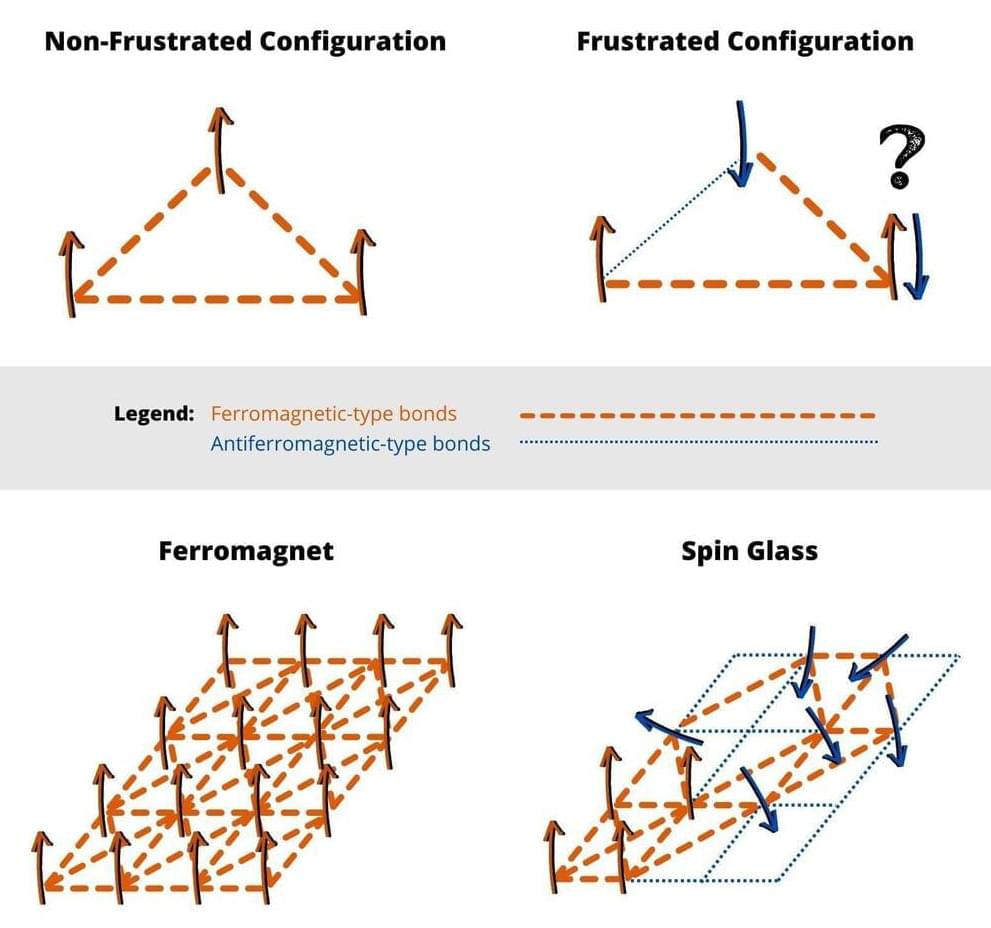Uttar Pradesh born Mithilesh Kumar Singh has created an urban vertical garden using PVC pipes to save on cost and space, and also runs Veg Roof, a farming startup that shares gardening tips.
Sounds Interesting? Share it now!


As the US government begins to consider some of the legal implications for copyright in connection with the development and deployment of artificial intelligence, it is important to first step back to ensure that we are properly guided by context and a proper understanding of our goals — grounded in an informed grasp of the relationship of copyright to the development of AI, and a fair observation of the state of legal developments around the world. Far too many observers have oversimplified how various countries have addressed the relationship between copyright and AI. The reality is that all who have done so have rejected the notion that copyright is not implicated, and have developed legal norms which carefully limit the scope of any exceptions with an eye towards facilitating licensing, even when they seek to expand the development of AI as a national economic imperative.
I have written about the approach taken by the EU in the updated Copyright Directive, and note here that despite claims about Japan’s legislation, even their provisions — as manifested in the 2018 amendments, are designed to avoid conflict with the legitimate interests of copyright owners. While I don’t necessarily agree with Japan’s approach, it is important to highlight that even its exceptions, as I understand them: recognize that text and data mining/machine learning does in fact implicate copyright; apply only to materials that have been lawfully acquired; require that the use of each work is “minor” relative to the TDM effort; and provide that license terms must be honored. While it remains unclear to me that Japan’s goal of respecting copyright as required by international law has been achieved, it is important to understand that claims that Japan has removed copyright as an issue that must be addressed in the development of AI are inaccurate.


Artificial Intelligence (AI) is rapidly changing the world. Emerging technologies on a daily basis in AI capabilities have lead to a number of innovations including autonomous vehicles, self-driving flights, robotics, etc. Some of the AI technologies feature predictions on future and accurate decision-making. AI is the best friend to technology leaders who want to make the world a better place with unfolding inventions.
Whether humans agree or not, AI developments are slowly impacting all aspects of the society including the economy. However, some technologies might even bring challenges and risks to the working environment. To keep a track on AI development, good leaders head the AI world to ensure trust, reliability, safety and accuracy.
Intelligent behaviour has long been considered a uniquely human attribute. But when computer science and IT networks started evolving, artificial intelligence and people who stood by them were on the spotlight. AI in today’s world is both developing and under control. Without a transformation here, AI will never fully deliver the problems and dilemmas of business only with data and algorithms. Wise leaders do not only create and capture vital economic values, rather build a more sustainable and legitimate organisation. Leaders in AI sectors have eyes to see AI decisions and ears to hear employees perspective.

Spin glasses are alloys formed by noble metals in which a small amount of iron is dissolved. Although they do not exist in nature and have few applications, they have nevertheless been the focus of interest of statistical physicists for some 50 years. Studies of spin glasses were crucial for Giorgio Parisi’s 2021 Nobel Prize in Physics.
The scientific interest of spin glasses lies in the fact that they are an example of a complex system whose elements interact with each other in a way that is sometimes cooperative and sometimes adversarial. The mathematics developed to understand their behavior can be applied to problems arising in a variety of disciplines, from ecology to machine learning, not to mention economics.
Spin glasses are magnetic systems, that is, systems in which individual elements, the spins, behave like small magnets. Their peculiarity is the co-presence of ferromagnetic-type bonds, which tend to align the spins, with antiferromagnetic-type bonds, which tend to orient them in opposite directions.
Go to https://buyraycon.com/isaacarthur and use code EARLYBF for 20% off sitewide! Brought to you by Raycon.
Many fear that future automation may turn out to be the bane of civilization rather than its liberator. How do we ensure we take the path to a prosperous world and not one of ruin?
Visit our Website: http://www.isaacarthur.net.
Support us on Patreon: https://www.patreon.com/IsaacArthur.
Support us on Subscribestar: https://www.subscribestar.com/isaac-arthur.
Facebook Group: https://www.facebook.com/groups/1583992725237264/
Reddit: https://www.reddit.com/r/IsaacArthur/
Twitter: https://twitter.com/Isaac_A_Arthur on Twitter and RT our future content.
SFIA Discord Server: https://discord.gg/53GAShE
Listen or Download the audio of this episode from Soundcloud: Episode’s Audio-only version: https://soundcloud.com/isaac-arthur-148927746/automated-economies-unemployment.
Episode’s Narration-only version: https://soundcloud.com/isaac-arthur-148927746/automated-econ…ation-only.
Credits:
What Happens If We Can’t Leave Earth?
Science & Futurism with Isaac Arthur.
Episode 368, November 10, 2022
Produced & Narrated by Isaac Arthur.
Written By:
Isaac Arthur.
Editors:

Other tech companies are not far behind.
Jeff Bezos founded Amazon.com Inc., has achieved the unenviable milestone of being the first public company to lose a trillion dollars in market valuation, Bloomberg.
How has Amazon stock fared in 2022?
Sundry Photography/iStock.
Incidentally, Amazon was among the first few companies to cross the $1 trillion valuation in the first place, and the recent dip is a sign of the nervousness in the markets about the slowdown in the global economy, led by the U.S. In a bid to keep their costs down, companies like Meta have recently announced layoffs. However, Amazon has so far avoided a reduction in its headcount.

SAN FRANCISCO — Two weeks after closing a $44 billion deal to buy Twitter, Elon Musk painted a bleak financial picture for the social media company and outlined a series of changes for employees in his first companywide emails to staff.
In two emails sent to workers late on Wednesday, Mr. Musk said the economy was challenging. He added that he planned to end Twitter’s remote work policy and wanted employees to renew their focus on generating revenue and fighting spam.
“Sorry that this is my first email to the company, but there is no way to sugarcoat the message,” Mr. Musk, 51, wrote in one email. “The economic picture ahead is dire.” Twitter was too heavily dependent on advertising and vulnerable to pullbacks in brand spending, he added, and would need to bolster the revenue it gets from subscriptions.

New psychology findings suggest that attractive students earn higher grades in school, but for female students, this beauty premium disappears when classes are taught remotely. The findings were published in the journal Economic Letters.
A large body of research suggests that physical appearance has an impact on a person’s success. For example, attractive people tend to earn more money and report higher life satisfaction than less attractive people. Interestingly, scholars have yet to agree on the explanation behind this beauty premium.
One account suggests that the beauty advantage can be explained by discrimination. For example, employers may inherently favor attractive over unattractive workers. Another perspective suggests that beauty is a productivity-enhancing attribute. This view suggests that attractiveness lends itself to higher productivity, for example, through increased self-confidence.

Plastic waste is clogging up our rivers and oceans and causing long-lasting environmental damage that is only just starting to come into focus. But a new approach that combines biological and chemical processes could greatly simplify the process of recycling it.
While much of the plastic we use carries symbols indicating it can be recycled, and authorities around the world make a big show about doing so, the reality is that it’s easier said than done. Most recycling processes only work on a single type of plastic, but our waste streams are made up of a complex mixture that can be difficult and expensive to separate.
On top of that, most current chemical recycling processes produce end products of significantly worse quality that can’t be recycled themselves, which means we’re still a long way from the goal of a circular economy when it comes to plastics.